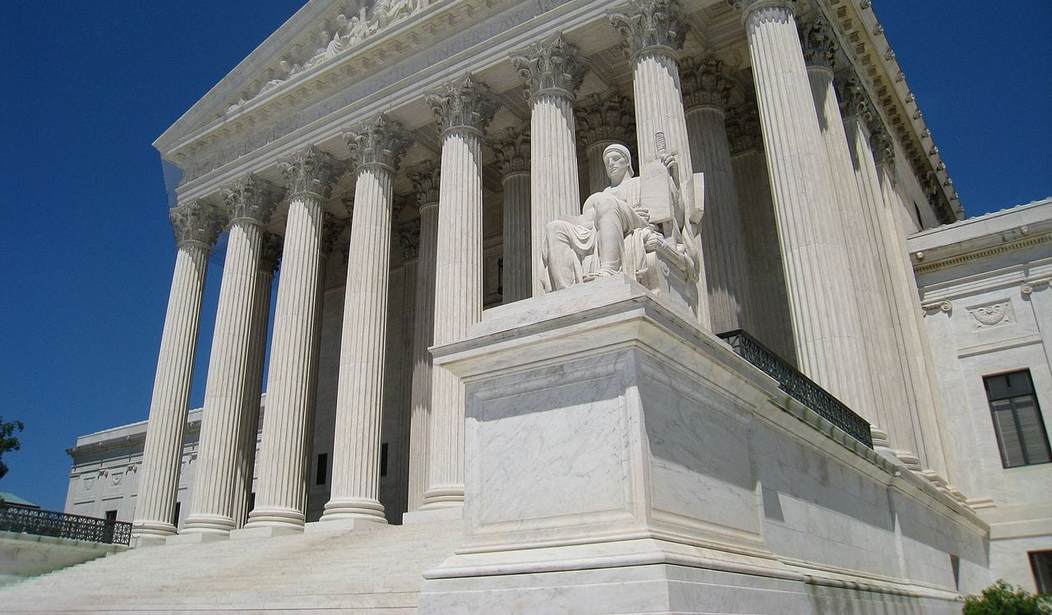On Monday, the Supreme Court ruled, 8-1, that a college cannot escape liability for quashing a student’s First Amendment rights to free speech and religious freedom by merely reversing its restrictions. Even if the school drops its free speech restrictions, students can still sue for damages, even if the damages are only nominal to make a point.
Chike Uzuegbunam, a Christian student at Georgia Gwinnett College, had sued his school after the college prevented him from preaching the gospel and handing out religious tracts due to its excessive speech codes, which limited free speech to 0.0015 percent of campus. Uzuegbunam sued, demanding an injunction and nominal damages. At first, the school defended its policy and claimed that Uzuegbunam’s preaching “arguably rose to the level of ‘fighting words.'” Then the college reversed, dropping the challenged policies.
Both the district court and the Eleventh Circuit Court of Appeals ruled that since the college had dropped its restrictions, the case was moot. Yet Supreme Court Justice Clarence Thomas ruled that a demand for nominal damages can save a lawsuit from becoming moot.
“For purposes of this appeal, it is undisputed that Uzuegbunam experienced a completed violation of his constitutional rights when respondents enforced their speech policies against him. Because ‘every violation [of a right] imports damage,’ nominal damages can redress Uzuegbunam’s injury even if he cannot or chooses not to quantify that harm in economic terms,” Thomas wrote in the majority opinion for Uzuegbunam v. Preczewski (2021).
Justices Stephen Breyer, Samuel Alito, Sonia Sotomayor, Elena Kagan, Neil Gorsuch, Brett Kavanaugh, and Amy Coney Barrett joined in Thomas’ ruling. Kavanaugh filed a concurring opinion. Only Chief Justice John Roberts dissented.
“The Supreme Court has rightly affirmed that government officials should be held accountable for the injuries they cause,” Kristen Waggoner, general counsel at Alliance Defending Freedom (ADF), the law firm representing Uzuegbunam, said in a statement.
“When public officials violate constitutional rights, it causes serious harm to the victims. Groups representing diverse ideological viewpoints supported our clients because the threat to our constitutionally protected freedoms doesn’t stop with free speech rights or a college campus,” she added.
“Officials within our public institutions shouldn’t get a free pass for violating constitutional rights on campus or anywhere else,” Waggoner argued. “When such officials engage in misconduct but face no consequences, it leaves victims without recourse, undermines the nation’s commitment to protecting constitutional rights, and emboldens the government to engage in future violations. We are pleased that the Supreme Court weighed in on the side of justice for those victims.”
“The Supreme Court got it right. Today’s ruling protects students’ ability to vindicate their priceless First Amendment rights and hold public university officials accountable,” Darpana Sheth, vice president at the Foundation for Individual Rights in Education (FIRE), said in a statement. (FIRE filed an amicus brief on behalf of Uzuegbunam.)
“As FIRE’s two decades of firsthand experience shows, public colleges and universities across the country routinely infringe student speech rights but can escape accountability by relying on a student’s impending graduation or otherwise mooting the case by changing the policy after a lawsuit is filed. The ruling correctly recognizes that these violations impose real harm, even if the silenced student cannot ‘quantify that hard in economic terms,'” Sheth added.
On the larger issue of whether or not the gospel of Jesus Christ qualifies as “fighting words,” Attorney General Christopher Carr (R-Ga.) later rescinded that claim. Carr had originally argued in a brief defending the college that Uzuegbunam’s preaching fell outside of the First Amendment’s free speech protections because his words had “a tendency to incite hostility.”
After Dr. R. Albert Mohler, president of Southern Baptist Theological Seminary, quoted this argument on his “The Briefing” podcast, Carr reached out, explaining that he had removed the argument that the gospel presentations are “fighting words.” He became attorney general in 2016 as his office was litigating the case, and it appears that his staff wrote the brief before he was able to reverse the argument.
“He stated to me that he emphatically does not identify the gospel of Jesus Christ with the language of fighting words when it comes to constitutionality,” Mohler reported last August.
Even so, the fact that lawyers working for the state of Georgia would consider making this argument is terrifying. “The point here is the abhorrence of considering the gospel of Jesus Christ as fighting words,” Mohler noted. “That does tell us again a great deal of where we stand in America, at least with some.”
Carr’s decision to rescind his claim was heartening, as was the Supreme Court’s ruling in the case.
Tyler O’Neil is the author of Making Hate Pay: The Corruption of the Southern Poverty Law Center. Follow him on Twitter at @Tyler2ONeil.









Join the conversation as a VIP Member